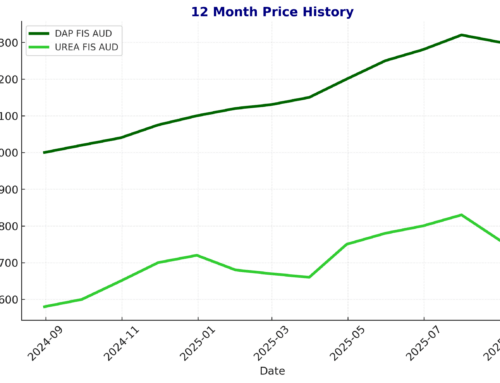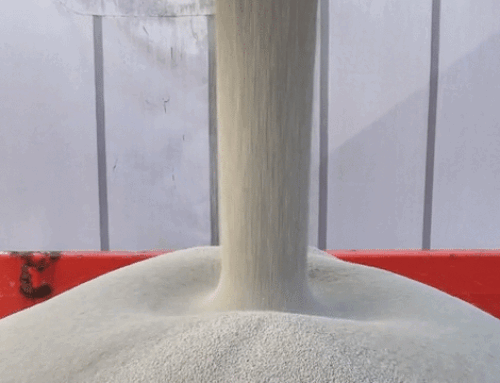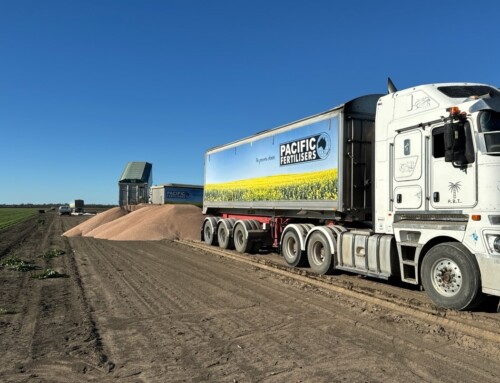Organibor is designed to be applied once every 1-3 years depending on the crop, climatic and soil conditions, and will continually release boron over that period of time so the plants, vines or trees will have a continual supply of boron right through all of their growing phases. The effect on the tree is the same as if it was grown in boron rich soils.
Organibor is a naturally occurring form of CaO MgO.3B2O3.6H2O, certified for organic use, magnesium/calcium borate that replenishes the boron levels in the soil in a controlled and natural way.
The product looks like a whitish chip 95% between 2-4mm, boron >10%, MgO 4.6% – 6.2% and available in bulkbags or pallets of 25kg bags. Organibor has an Organic Certification BFA as an allowed input 10982A.
We an also do a 50/50 boron blend of Granubor and Organibor – which provides a fast and slow release of boron into your crop/soil (blend 12% B, 8% Ca, 0.6% Mg)
Application Rates
Organibor is a controlled release fertiliser designed to release over several years, so the timing of application is not as critical, however, mid winter to late spring is the preferred time of application for most annual crops. Below is a guide to the expected application rates for selected crops.
Apples 30kg – 70kg per ha
Grapes 30kg – 70kg per ha
Avocados 30kg – 70kg per ha
Vegetable crops 30kg – 70kg per ha
Boron is one of the essential trace elements that every plant relies on and is well known to be a valuable resource ensuring a plant’s healthy leaf development, flowering, reproductive cycle and seed development.
Boron fertilisers generally come in the form of either sodium borate (highly soluble), calcium borate (extremely insoluble), or magnesium borate, which sits relatively in the middle. Growers using sodium borate face two key problems;
1. Boron that is not taken up by plants leaches away or
2. too much boron is released and taken up by the plant causing boron toxicity.
Unlike sodium borates, Organibor can be applied to crops and pasture just once every 12 to 24 months depending on desired outcomes, soil and climate conditions.
The calcium/magnesium borate chip releases boron at a similar rate to which most plants take up boron from the soil, therefore eliminating the risk of boron toxicity or creating boron-deficient environments.









